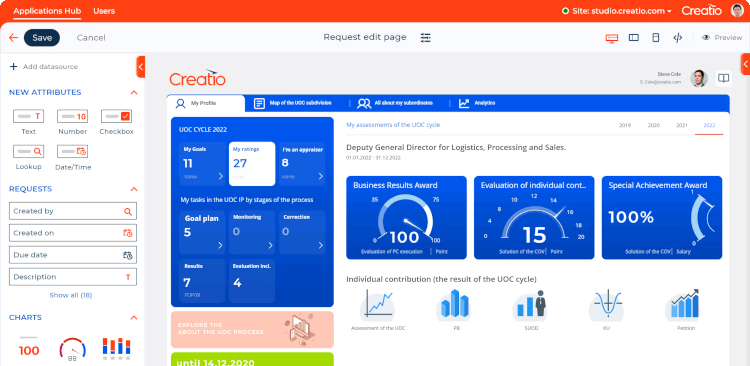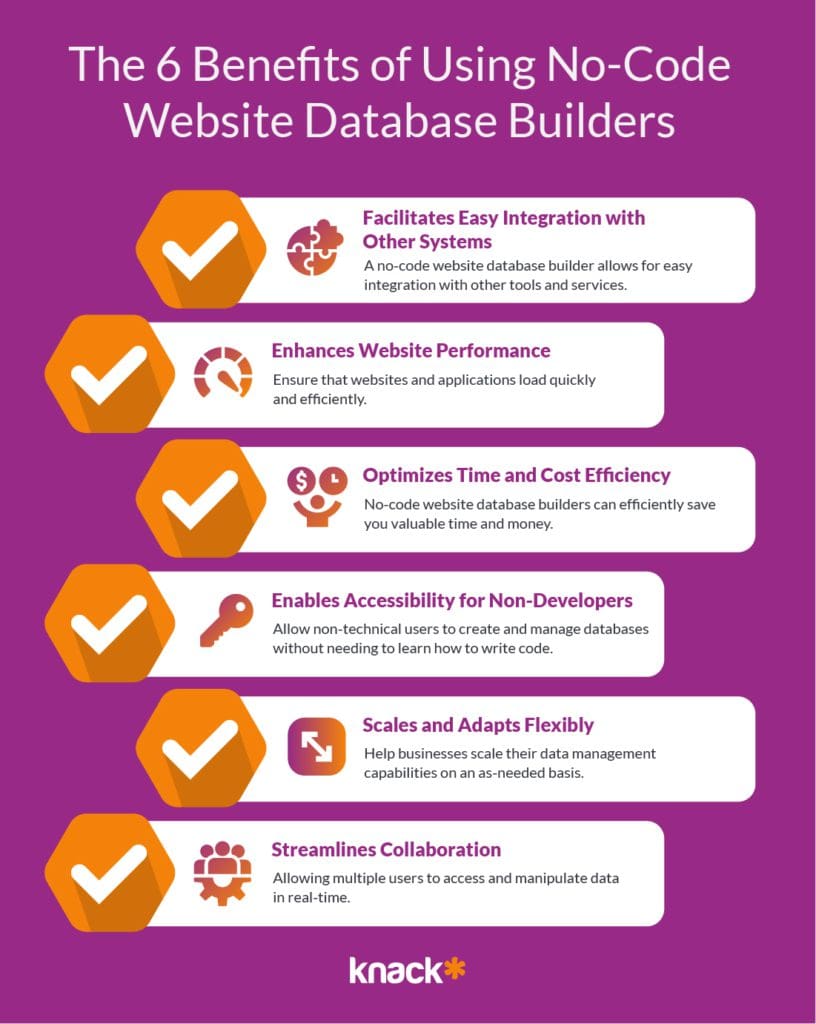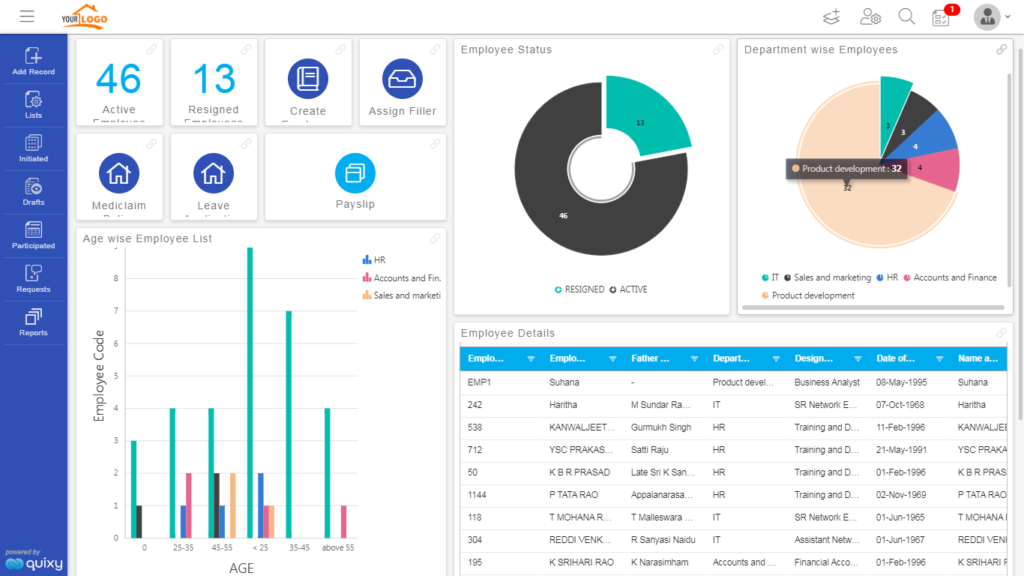Exploring the Benefits of Scalable Databases That Call For No Coding Skills for Reliable Data Management Solutions
The introduction of scalable databases that remove the requirement for coding abilities presents a transformative chance for companies seeking reliable information management remedies. As we take into consideration the implications of such advancements, it comes to be vital to examine just how they can reshape the landscape of data monitoring and drive sustainable development in an affordable setting.
Improved Access for Customers
Enhanced access for customers is a critical element of scalable data sources, making sure that data monitoring systems are straightforward and user-friendly. In a period where data-driven choices are extremely important, access permits a bigger series of users, consisting of those without substantial technical competence, to engage with database systems efficiently. This democratization of data gain access to promotes improved cooperation throughout departments, empowering workers to extract insights and make notified choices.
User-friendly interfaces, such as drag-and-drop functions and visual information representation, streamline complicated data interactions. These enhancements minimize the understanding contour related to standard data source monitoring, making it possible for customers to focus on leveraging data rather than facing technical intricacies. Scalable databases commonly include customizable control panels and real-time analytics, giving users with immediate insights customized to their details needs.

Cost-Effectiveness and Source Financial Savings
Efficient information monitoring not only rests on availability however also on cost-effectiveness and resource financial savings. Scalable data sources created for users with no coding skills substantially minimize financial problems commonly connected with typical data source monitoring systems. By getting rid of the requirement for specialized programming experience, organizations can designate their resources a lot more successfully, concentrating funds on core business activities as opposed to comprehensive training or working with proficient workers.
Additionally, these databases often use cloud-based services, which additionally reduce expenses associated to hardware and maintenance. Organizations can scale their data source solutions according to their needs, preventing the expenditures incurred from over-provisioning resources. This versatility indicates businesses can adjust to changing demands without incurring unneeded costs, resulting in considerable lasting cost savings.
In addition, straightforward interfaces improve information entry and management processes, reducing the time spent on administrative jobs. This effectiveness translates into labor expense savings, enabling groups to focus on critical efforts as opposed to routine upkeep. In general, adopting scalable databases that call for no coding skills fosters a more cost-effective approach to data administration, enabling companies to maximize their resources while maintaining high degrees of operational effectiveness.
Improved Cooperation Across Teams

Moreover, scalable databases facilitate seamless interaction among staff member. With straightforward user interfaces that require no coding skills, workers can conveniently develop, change, and share reports or control panels tailored to their specific demands. This democratization of data equips non-technical individuals to contribute insights, improving the joint atmosphere.
In addition, see this here these data sources sustain simultaneous accessibility, allowing numerous individuals to function on the exact same dataset all at once. This attribute improves productivity, as teams can take part in joint data evaluation without the risk of version control issues. The capacity to leave notes or comments directly within the data source even more advertises discussion and clears up information interpretations.
Streamlined Data Management Processes
In today's data-driven setting, organizations acknowledge the necessity of structured information administration refines to maximize performance and precision. By leveraging scalable databases that require no coding abilities, organizations can streamline their information handling and reduce the intricacies typically connected with traditional data source systems. This availability equips non-technical customers to engage straight with information, facilitating quicker decision-making and decreasing reliance on specialized IT personnel.
Structured data monitoring processes enhance operations by automating routine tasks such as information entry, recognition, and coverage. Automated information assimilation makes certain that info from numerous sources is aggregated seamlessly, removing silos and promoting an unified view of critical business metrics (no-code). User-friendly user interfaces allow workers to control data quickly, enabling them to generate insights that drive critical initiatives without the requirement for comprehensive training.
This efficiency not only accelerates functional procedures yet likewise minimizes the potential for human mistake, making sure that data continues to be trustworthy and precise. Eventually, structured information monitoring processes with scalable databases result in enhanced efficiency, permitting organizations to concentrate on core tasks while making sure that their data administration techniques are reliable and efficient.
Scalability for Expanding Businesses

For increasing ventures, the ability to scale up or down is crucial. A scalable data source can take care of an increase of information created from brand-new consumers, items, or solutions, ensuring that company operations continue to be uninterrupted. These data sources supply the ability to take care of peak tons efficiently, which is vital throughout periods of quick development or seasonal spikes.
Additionally, several scalable database solutions are made with user-friendly user interfaces that call for no coding abilities, equipping non-technical personnel to handle data properly (no-code). This democratization of information monitoring enables companies to allot sources purposefully and reduce dependence on specialized IT employees
Inevitably, embracing a scalable database not just enhances functional try this efficiency however likewise fosters an environment where services can innovate and develop without the constraints of traditional database systems. This flexibility positions companies for lasting success in today's competitive landscape.
Conclusion
In final thought, scalable databases that need no coding abilities supply considerable advantages for efficient data management. By streamlining data administration procedures and supplying scalability for growing companies, such remedies make it possible for companies to adjust to transforming demands efficiently.
Enhanced accessibility for customers is an essential element of scalable databases, making certain that data administration systems are easy to use and intuitive.Straightforward interfaces, such as visual information and drag-and-drop features depiction, visit simplify intricate information communications. In general, adopting scalable databases that call for no coding abilities fosters a much more affordable technique to information monitoring, enabling companies to optimize their sources while keeping high levels of functional efficiency.
By leveraging scalable data sources that call for no coding skills, organizations can streamline their information handling and reduce the complexities normally connected with standard data source systems - no-code.Structured information monitoring processes improve process by automating routine tasks such as information entrance, recognition, and coverage